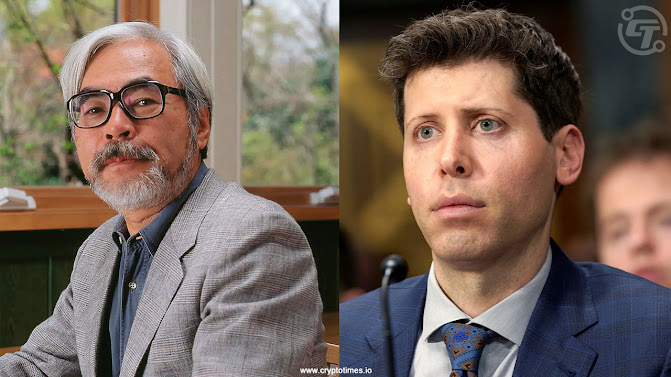OpenAI is facing yet another controversy, this time involving the beloved animation powerhouse Studio Ghibli. A viral trend saw users generating AI images in the style of Ghibli’s legendary animator Hayao Miyazaki, sparking heated debates over copyright infringement and artistic ownership.
Even OpenAI’s CEO, Sam Altman, joined in on the trend, jokingly referring to himself as a “twink Ghibli style” on social media. But the buzz soon turned chaotic as OpenAI started cracking down on the trend, implementing inconsistent restrictions that frequently reject requests for Ghibli-style images.
This has reignited concerns over how generative AI could be undermining human artists and publishers—especially elite animation studios like Ghibli. And according to Rob Rosenberg, former general counsel at Showtime and AI law expert, the studio may have legal grounds to take action against OpenAI.
Could Ghibli Sue OpenAI?
Rosenberg, who now heads Telluride Legal Strategies, explains that while it’s a complex legal issue, Ghibli “might have the ability to claim OpenAI has violated the Lanham Act, which provides the basis for claims related to false advertising, trademark infringement, and unfair competition.”
The Lanham Act, enacted in 1946, governs trademark law in the U.S. and allows companies to sue over infringement cases. According to Rosenberg, Ghibli could argue that OpenAI is “trading off the goodwill of Ghibli’s trademarks, using Ghibli’s identifiable style and leading to a likelihood of confusion among consumers that this function is endorsed or licensed by Studio Ghibli.”
Beyond that, OpenAI could also face legal trouble for using Studio Ghibli’s copyrighted works to train its AI models. “Training its large language models on Studio Ghibli’s copyrighted works” could lead to another legal battle, Rosenberg added.
Ongoing copyright battles in AI
OpenAI is already entangled in multiple lawsuits over how it gathers training data for its AI models. In late 2023, The New York Times sued OpenAI for allegedly infringing on its copyright by using its articles without permission to train AI models. Just this week, a federal judge rejected OpenAI’s attempt to dismiss that lawsuit.
Other tech giants are also facing scrutiny. Mark Zuckerberg’s Meta has been accused of illegally scraping pirated books to train its AI systems, further fueling the controversy around AI training practices.
OpenAI, however, maintains that training its models falls under the “fair use doctrine” in copyright law, which allows limited use of copyrighted materials without explicit permission.
Still, the courts have yet to set a definitive legal precedent on whether AI-generated content infringes on copyright. “If OpenAI were marketing its platform as a place where consumers could go to turn their photos into ‘Ghibli-style’ anime, that fact would weigh more strongly in favor of a court finding that OpenAI’s conduct violated the Lanham Act,” Rosenberg noted.
The concerns go beyond still images. AI-generated animations in the Ghibli style could lead to the creation of entire fake projects, falsely marketed as authentic works of the studio. “It’s similar to asking AI to rewrite a short story in the style of JK Rowling and then posting it online as a ‘lost’ Rowling work,” Rosenberg said. “Blurring the line between homage and outright misrepresentation.”
Whether Studio Ghibli will take legal action against OpenAI remains uncertain. The studio recently told Japanese news outlet NHK that a viral cease-and-desist letter claiming to be from Ghibli was fake.
But if courts ultimately reject OpenAI’s “fair use” defense, Rosenberg concluded that AI developers may soon be required to compensate copyright holders and properly credit them when their work influences AI-generated content.
Also Read: “It’s Disrespectful”: Artists speak out against Ghibli Art of OpenAI








